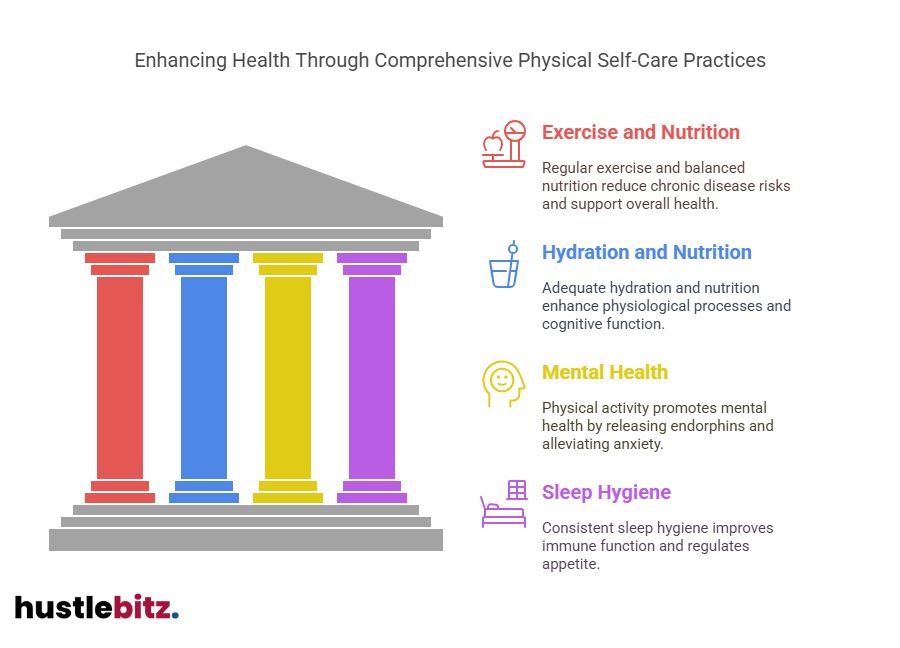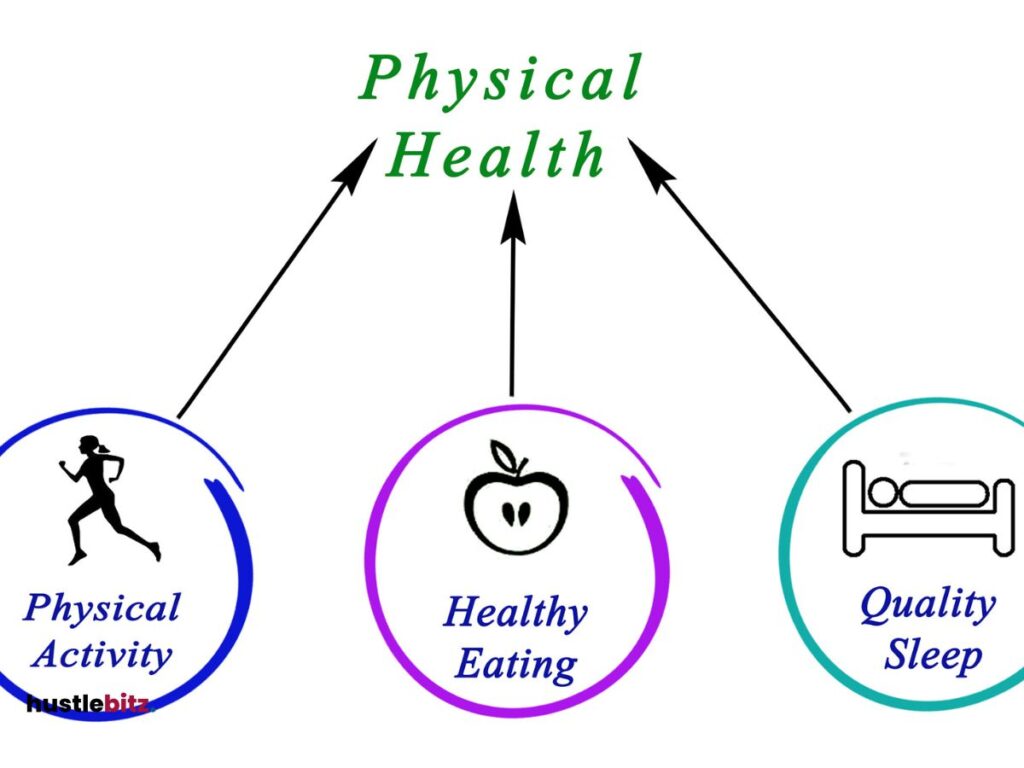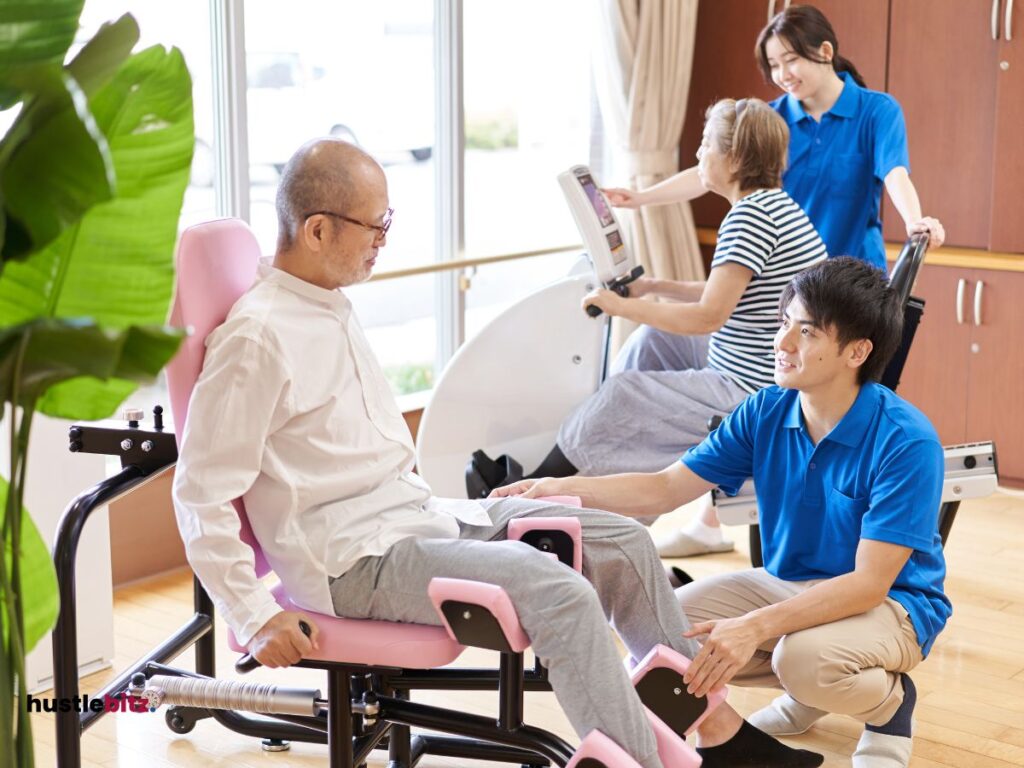Physical self-care significantly impacts overall health, promoting both physical and mental well-being. Engaging in regular exercise strengthens cardiovascular health and enhances immune function. Balanced nutrition and proper hydration contribute to optimal bodily functioning, improving cognitive and emotional stability. Additionally, adequate sleep supports immune health and aids in recovery. Studies link consistent self-care practices to lower rates of chronic diseases such as obesity and diabetes, while also fostering better mental health outcomes by alleviating stress and anxiety. Understanding these connections reveals pathways to sustained vitality and quality of life, inviting further exploration into effective self-care strategies.
Key Takeaways
- Physical self-care practices reduce the risk of chronic diseases such as obesity, diabetes, and heart disease through regular exercise and balanced nutrition.
- Adequate hydration and nutrition support physiological processes, enhance cognitive function, and stabilize energy levels for overall health.
- Regular physical activity promotes mental health by releasing endorphins, alleviating anxiety, and providing emotional regulation through structure and routine.
- Consistent sleep hygiene improves immune function, enhances muscle recovery, and regulates appetite, contributing to long-term health benefits.
- Engaging in community health initiatives fosters social connections, enhancing motivation and accountability in maintaining physical self-care practices.

Importance of Physical Self-Care
While often overlooked, physical self-care is crucial for maintaining overall health and well-being, as it directly influences both mental and physical functioning. The importance of physical self-care cannot be overstated; it serves as the foundation for achieving optimal physical health and enhancing quality of life.
Engaging in self-care practices such as regular exercise, balanced nutrition, and adequate sleep significantly contribute to disease prevention and overall health. Studies indicate that individuals who prioritize physical self-care experience lower rates of chronic diseases, including obesity, diabetes, and cardiovascular conditions.
Regular physical activity, for instance, not only strengthens the cardiovascular system but also boosts the immune response, reducing the risk of illness. Likewise, a nutritious diet rich in essential vitamins and minerals plays a vital role in maintaining bodily functions and preventing nutritional deficiencies.
Moreover, self-care practices extend beyond mere physical activities; they encompass lifestyle choices that promote holistic well-being. Adequate hydration, routine medical check-ups, and mindfulness practices contribute to a well-rounded approach to health maintenance.
Individuals who adopt these practices often report higher energy levels, improved mood, and enhanced resilience to stress, all of which are essential for navigating daily challenges.
How Physical Self-Care Influences Mental and Emotional Health

The interplay between physical self-care and mental and emotional health is significant, as regular engagement in self-care activities fosters resilience and enhances psychological well-being. Physical self-care practices, such as regular exercise, have been shown to provide numerous benefits that extend beyond the physical realm, directly influencing mental health and overall well-being.
Engaging in regular physical activity releases endorphins, often referred to as ‘feel-good’ hormones, which can alleviate symptoms of anxiety and depression. This biochemical response not only improves mood but also contributes to a sense of achievement and self-worth, further bolstering mental health. Additionally, physical self-care routines can establish a sense of structure and routine, which is essential for individuals struggling with emotional dysregulation.
Moreover, physical self-care practices encourage mindfulness and present-moment awareness. Activities such as yoga or tai chi promote relaxation and reduce stress, allowing individuals to process emotions more effectively. This holistic approach ensures that both physical and mental health are nurtured, paving the way for improved emotional stability.
Furthermore, the social aspect of physical self-care, whether through group exercise classes or sports, fosters connections and support systems. These interactions can provide emotional resources that enhance resilience during challenging times.
Ultimately, the integration of physical self-care into daily life is vital for achieving optimal mental health, as it lays the foundation for comprehensive well-being and a balanced, fulfilling life.
Nutrition and Well-Being

Nutrition plays a pivotal role in overall well-being, serving as the foundation for both physical health and mental resilience. A healthy diet not only fuels the body but also supports cognitive function, emotional stability, and effective stress management. When individuals prioritize nutrition and well-being, they engage in physical self-care practices that promote long-term health.
To enhance your nutrition and promote a balanced diet, consider the following key elements:
- Variety of Nutrients: Incorporate a wide range of fruits, vegetables, whole grains, lean proteins, and healthy fats into your meals. This diversity ensures that your body receives essential vitamins and minerals necessary for optimal functioning.
- Mindful Eating: Practice mindfulness during meals by focusing on the taste, texture, and aroma of your food. This approach encourages better digestion and helps prevent overeating, fostering a healthier relationship with food.
- Regular Meal Patterns: Establish a routine that includes regular meals and snacks. Consistency in eating patterns helps maintain energy levels, stabilize blood sugar, and supports overall health promotion.
The Benefits of Consistent Hydration on Your Health
Consistent hydration plays a vital role in enhancing overall health, complementing the benefits of a balanced diet by supporting bodily functions and promoting physical well-being. Water is essential for various physiological processes, including temperature regulation, nutrient transportation, and waste elimination.
Adequate fluid intake is crucial, particularly during physical activities, as it helps maintain energy levels and reduces the risk of dehydration-related complications.
The benefits of consistent hydration extend beyond physical performance; they also contribute significantly to overall wellness. Proper hydration aids in cognitive function, improves mood, and can even mitigate feelings of fatigue.
When individuals prioritize hydration as part of their self-care goals, they often notice improvements in their skin elasticity, digestion, and joint health. These factors collectively enhance health and well-being, fostering a more vibrant and active lifestyle.
Moreover, establishing a routine for consistent hydration encourages mindfulness about one’s health. By setting reminders to drink water throughout the day or incorporating hydrating foods into meals, individuals can better align their daily habits with their wellness objectives.
This proactive approach not only supports physical health but also reinforces a commitment to self-care practices.
The Importance of Sleep in Maintaining Physical Health

Adequate sleep is crucial for maintaining optimal physical health, as it significantly influences various bodily functions, including immune response, metabolism, and muscle recovery. Understanding the importance of sleep can be a transformative aspect of self-care that enhances overall well-being and helps prevent health problems.
Incorporating good sleep hygiene into your routine can lead to numerous benefits, including:
- Enhanced Immune Function: Quality sleep is essential for the body to produce cytokines, which are proteins that help combat infections and inflammation.
- Improved Metabolism: Sleep regulates hormones that control appetite and glucose metabolism, making it easier to maintain health and manage weight.
- Accelerated Muscle Recovery: During deep sleep, the body repairs tissues and builds muscle. This is particularly vital for individuals engaging in regular physical activity.
Prioritizing sleep is not merely a luxury but a necessity for effective self-care. A consistent sleep schedule, a comfortable sleep environment, and limiting screen time before bed are practical steps to achieve restorative rest.
The relationship between sleep and physical health is profound; inadequate sleep can exacerbate existing health problems and hinder recovery from illness or injury. By recognizing the importance of sleep and integrating it into your self-care routine, you are not only enhancing your physical health but also setting the foundation for a more active and fulfilling life.
Long-Term Health Outcomes

The integration of physical self-care practices into daily routines can significantly influence long-term health outcomes, promoting resilience against chronic diseases and enhancing overall quality of life.
Engaging in a consistent exercise routine is one of the most effective ways to foster both physical and mental well-being. Regular physical activity not only strengthens the cardiovascular system but also improves metabolic health, which can help reduce the risk of conditions such as obesity, diabetes, and heart disease.
Establishing a healthy routine that includes balanced nutrition, sufficient hydration, and adequate sleep further compounds these benefits. These elements work synergistically to bolster the immune system and maintain optimal body function, creating a solid foundation for long-term health.
Furthermore, research indicates that individuals who prioritize their physical self-care are often better equipped to manage stress and anxiety, leading to improved mental health outcomes.
Additionally, the positive effects of a healthy routine extend beyond the individual. Communities that encourage physical self-care practices can enhance social connections and support systems, contributing to a collective sense of well-being.
This holistic approach not only nurtures individual health but also promotes a healthier society overall.
Final Thoughts
Incorporating physical self-care into your daily routine is essential for maintaining overall health and well-being. By prioritizing regular exercise, balanced nutrition, adequate hydration, and sufficient sleep, you can significantly improve both your physical and mental health. These practices not only reduce the risk of chronic diseases but also enhance your resilience to stress and anxiety. Remember, self-care is a long-term commitment to yourself. By making these habits a regular part of your life, you pave the way for sustained vitality, better mental health, and a higher quality of life. Keep exploring and adjusting your self-care strategies to meet your unique needs, ensuring that you remain healthy and balanced for the long term.




